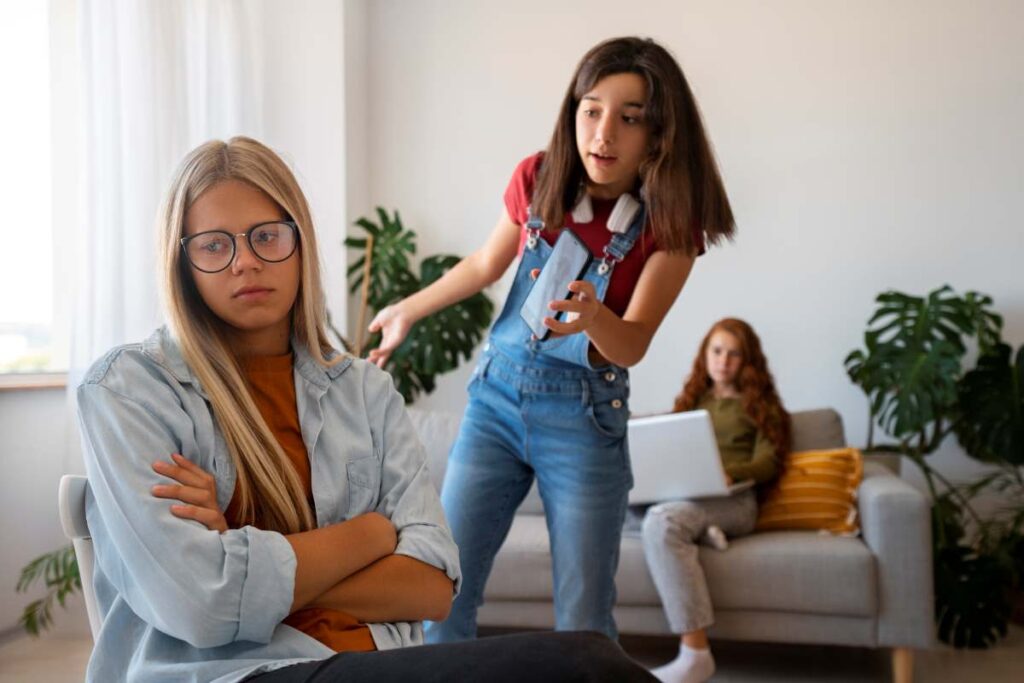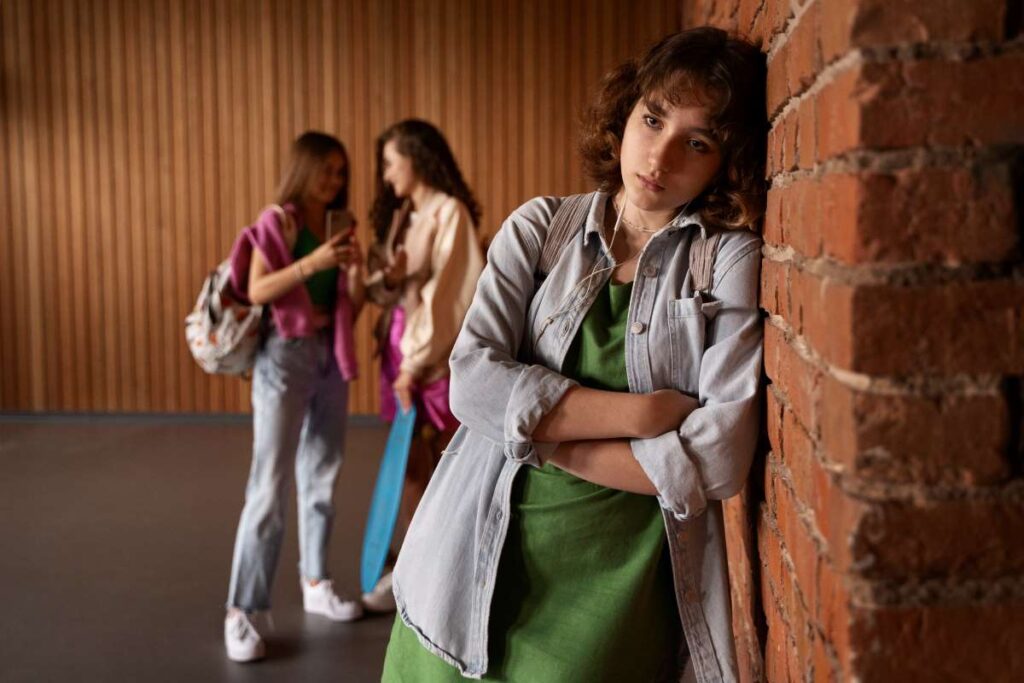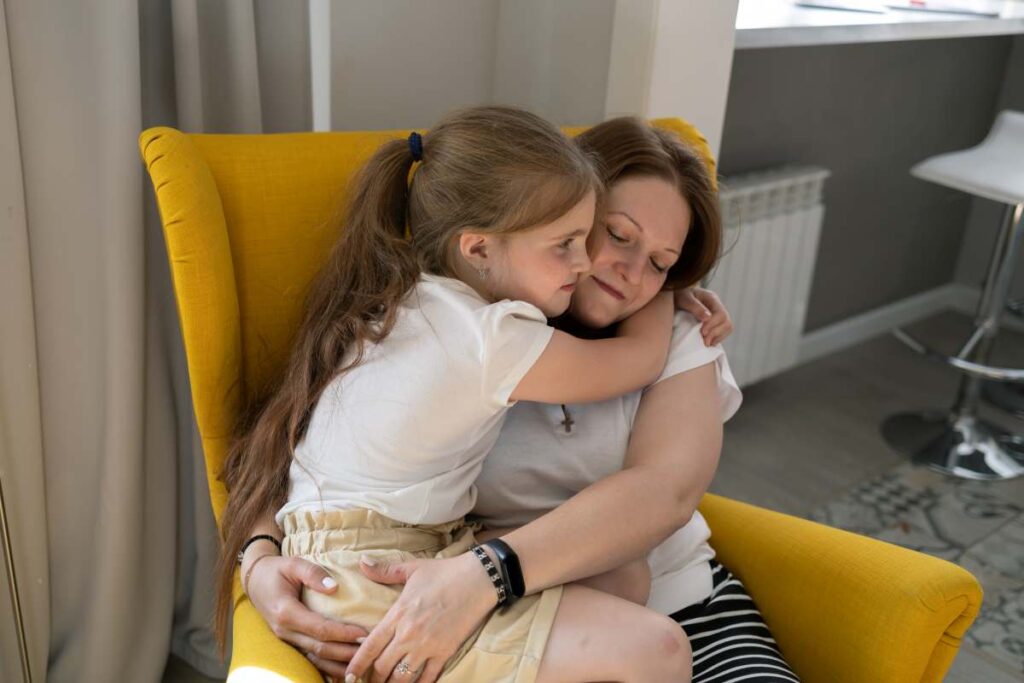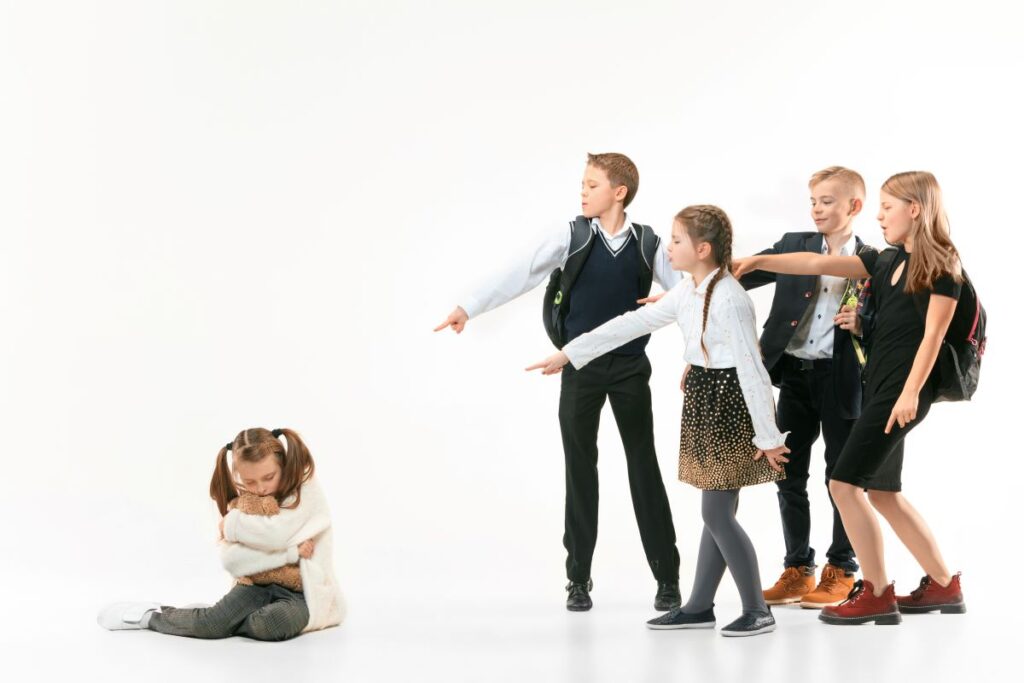Помните советский фильм режиссера Ролана Быкова “Чучело”? Где все одноклассники ополчились против новенькой и начали ее “буллить”, как сейчас модно говорить? Казалось, в 80-е годы в советской школе это было немыслимо – травля в школе. На самом деле, что 40-50 лет назад, что сейчас, это обычное поведение в детском коллективе. Разберемся, что говорят психологи, и как действовать родителям в случае буллинга в наше время.
Почему тема буллинга сейчас актуальна?
Если мы об этом не знали раньше, не значит, что этого не было. С развитием интернета мы стали быстрее узнавать все новости. И то, что случилось 5 минут назад, можно прочитать на любом ресурсе. Особенно, о насилии в школе начинают говорить во всеуслышание после шутингов – случаев, когда школьники-жертвы приходят с оружием в школу с целью отомстить своим обидчикам.
Психологи начали активно обсуждать причины возникновения травли среди детей, а также способы с ней справиться.
Роли в школьной травле

Детские специалисты отмечают, что буллинг тесно связан с возрастом – он начинается в 1-2 классе и заканчивается к концу средней школы. Возможно, к этому времени дозревает психика, или это совпадает с тем, что зачинщики уходят из школы после 9 класса.
Когда в детском коллективе начинается конфликт, обычно в этом участвует три стороны – зачинщик (он же “буллер”), жертва и наблюдатели. Последние могут участвовать опосредованно, не цепляя жертву, но и не рассказывая о конфликте взрослым. Так они становятся соучастниками травли.
От кого исходит травля в школе?
Существует множество причин, по которым в коллективе может возникнуть буллинг. Это может исходить как от ребенка, так и от взрослого, например, учителя. К сожалению, со вторым вариантов бороться сложнее. И здесь совершенно точно придется подключать администрацию школы или менять учебное заведение.
В первом случае – нужно понять, насколько агрессивен зачинщик, и, если он приносит физический вред жертве, срочно доводить дело до педагогов и руководства. Если травля моральная, можно попытаться решить вопрос с ребенком и родителями. При таком варианте может выясниться много интересного, например, что творится в семье у зачинщика. Возможно, ему самому требуется психологическая помощь.
Но бывают случаи, когда буллер из благополучной семьи, но с завышенной самооценкой. Отличный манипулятор, он считает себя лучше других детей в классе и специально ищет жертву, чтобы выплеснуть на нее свое “превосходство”. Все случаи нужно разбирать отдельно и, конечно, привлекать не только зачинщика, жертву, педагога, но и наблюдателей. Чтобы остальные дети тоже осознали, насколько негативно их молчание влияет на ребенка, которого травят.
Что не так с жертвой буллинга?


Так устроен любой коллектив – люди не любят слабых и уязвимых. Но, если психика взрослого человека позволяет ему включить сочувствие или, наоборот, не обращать внимание на особенности человека, то незрелая детская психика срабатывает наоборот. Если в коллективе есть ребенок с замашками агрессора, он точно проявит себя в отношении “не такого, как все” ребенка.
Причем у жертвы могут быть совершенно незначительные особенности, на которые обычные дети не обратят внимание или сочтут изюминкой. Например, ребенок недавно сменил страну и плохо говорит на языке страны, или носит очки, или картавит. Да мало ли что у него может быть! Буллеру достаточно одной детали, чтобы зацепиться, а дальше – либо потенциальная жертва сумеет дать отпор либо нет. Из небольшой стычки может вырасти настоящее противостояние, приводящее иногда к трагедии.
Не зря психологи, разбирающие шутинги в школах, говорят о том, что предпосылкой всегда была травля. Хотя одноклассники и учителя могут отрицать это, но то, что наблюдателям может казаться ничем особенным, жертву может мучить годами.
Как реагировать родителям жертвы


Для начала нужно выяснить, есть ли насилие в отношении ребенка в школе. Не стесняйтесь разговаривать о том, как проходят дни, чем занимается ребенок на переменах. Узнать, с кем он дружит, спросить, кто как себя ведет, есть ли в классе “компании”. По реакции ребенка будет понятно, если он что-то утаивает или уходит от темы. Также необходимо обратить внимание, если ребенок часто болеет и с удовольствием остается дома. Проследите за его настроением, как часто он бывает погружен в себя, мучает ли бессонница и так далее. Любая смена настроения в отрицательную сторону не должна оставляться родителями без внимания.
Итак, если ребенок все-таки поделился, что его в классе травят, необходимо успокоить его и показать, что вы за него. Ребенку важно доверять взрослому. Важно знать, что за него заступятся и не оставят наедине с проблемой. Ведь именно с такими детьми часто случается трагедия, когда родителям уже никак не вернуть все назад.
Далее нужно собрать максимально полный анамнез истории – с чего все началось, какие были случаи еще, каким образом нанесена обида. Собрав полную картину, нужно сообщить классному руководителю. Возможно, он уже в курсе, просто решил не доводить до родителей. Или занял выжидательную позицию. Если учитель идет на диалог, совместно выработать план действий. Не всегда достаточно встречи с родителями обидчика, часто необходима помощь учителя и разговор со всем классом.
Выводы
К сожалению, бывает так, что школа занимает позицию “страуса”, предпочитая замалчивать конфликт. Если это действительно так, то, скорее всего, в этом коллективе ребенок не будет чувствовать себя комфортно и дальше. Поэтому лучшим вариантом будет уйти на домашнее обучение или сменить школу, чтобы уберечь ребенка от агрессии
В нашем блоге вы можете найти интересные статьи по педагогике и воспитанию детей. Например, на тему психологии для родителей:
- Подборка популярных книг психологов для родителей
- 18 новых книг о нейробиологии, психологии и взрослении
Занятия в нашей школе проходят онлайн в комфортной, дружелюбной обстановке. Попробовать уроки русского языка можно бесплатно. Чтобы записаться на вводный урок, оставьте заявку в форме ниже.







